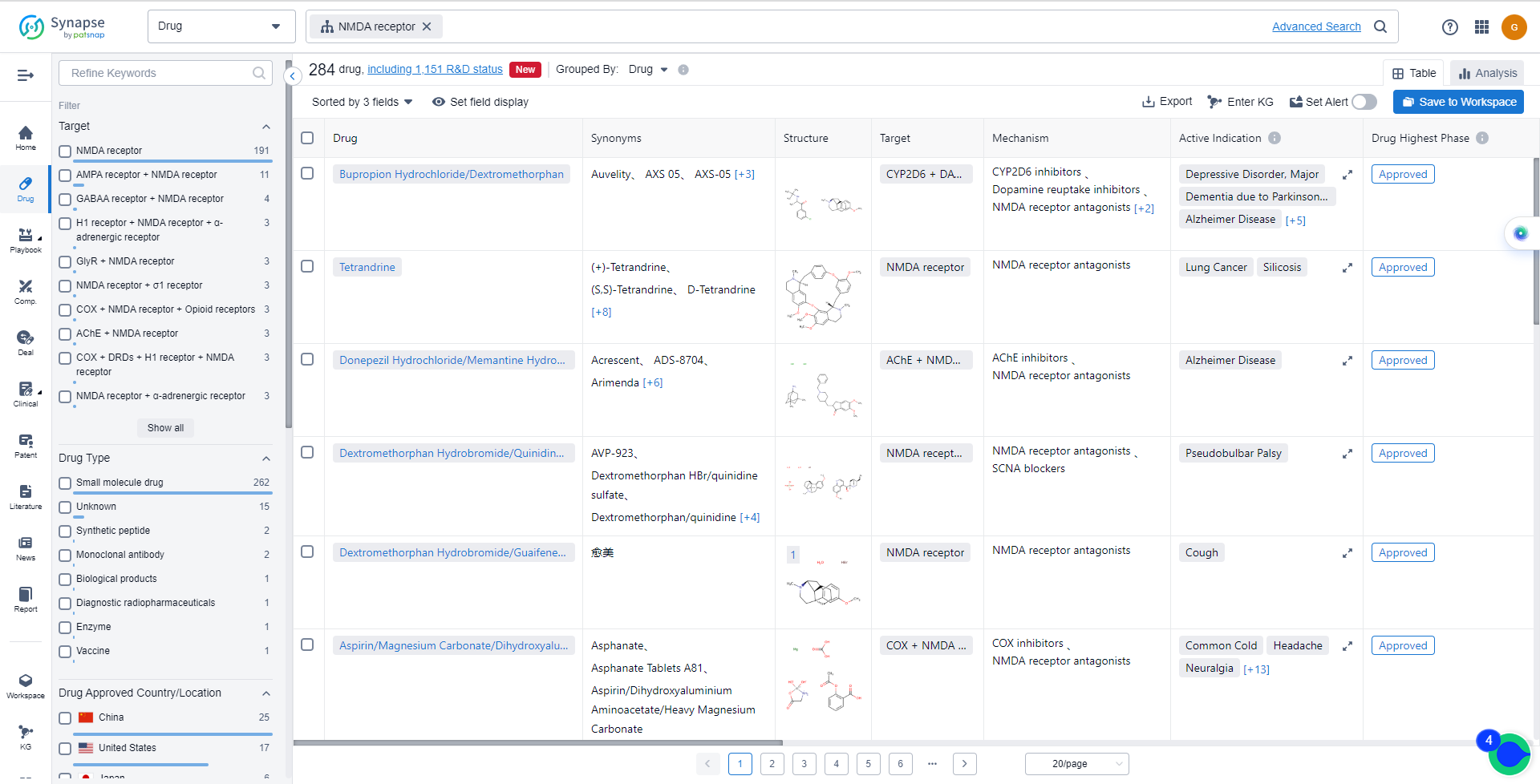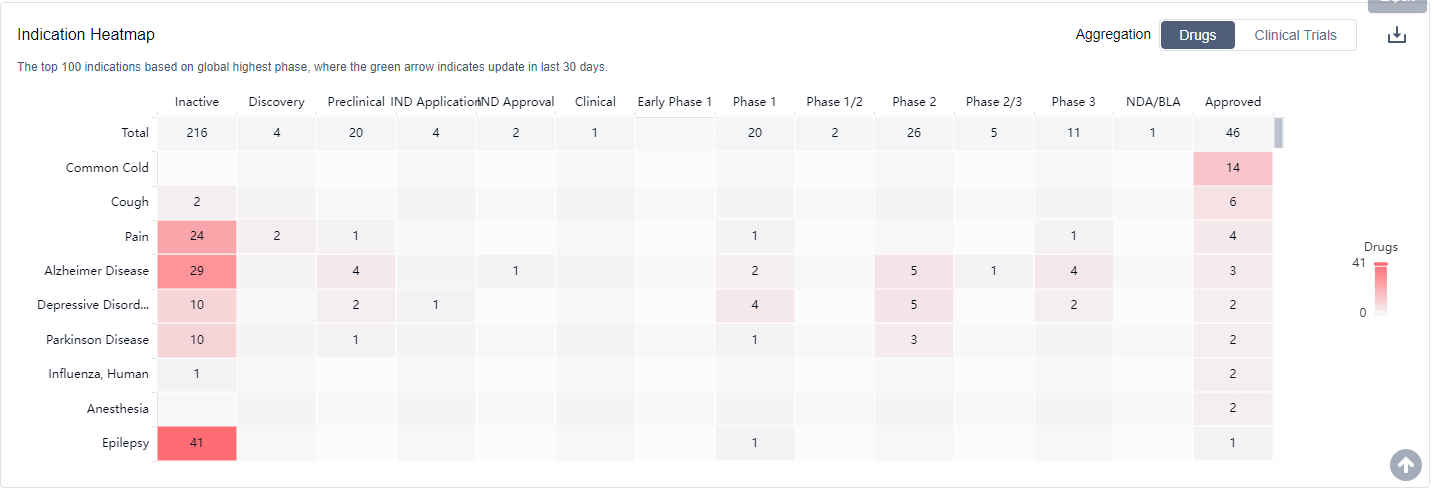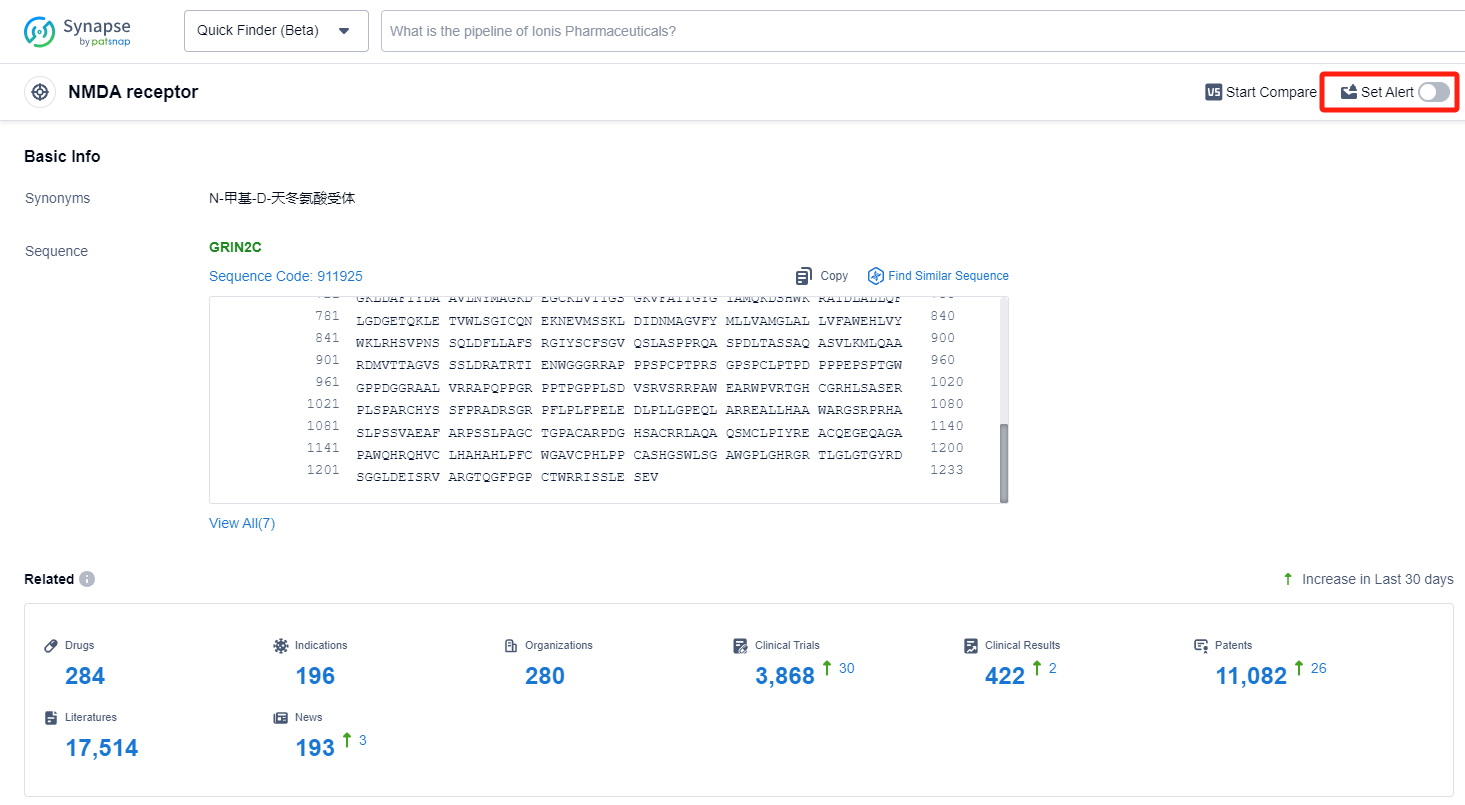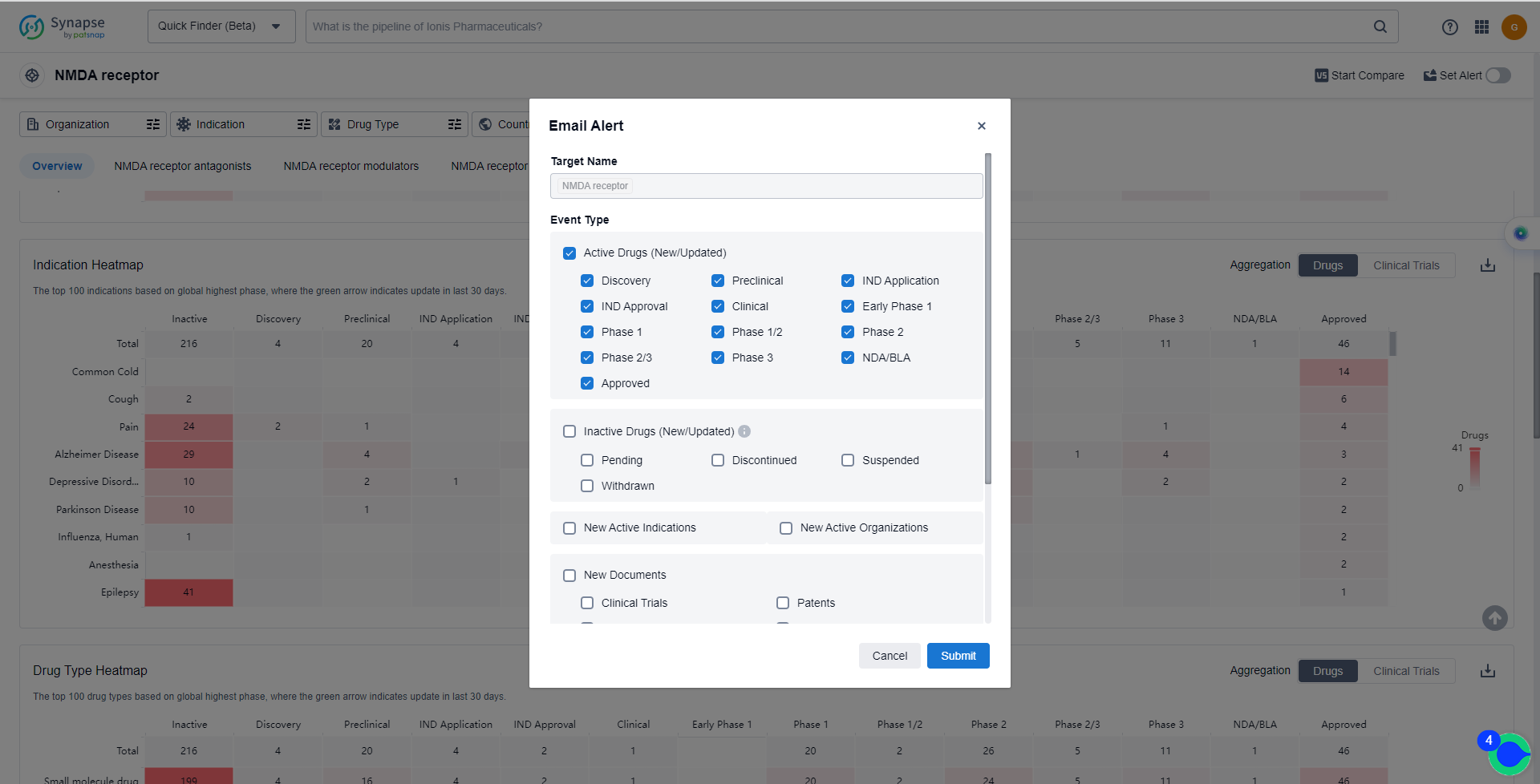Deciphering NMDA receptor antagonists and Keeping Up with Their Recent Developments
The NMDA receptor, a type of glutamate receptor, plays a crucial role in the human body. It is primarily found in the central nervous system and is involved in various physiological processes such as learning, memory, and synaptic plasticity. Activation of the NMDA receptor allows the influx of calcium ions into neurons, which is essential for neuronal communication and the formation of new connections. However, dysregulation of NMDA receptor activity has been implicated in several neurological disorders, including Alzheimer's disease, Parkinson's disease, and epilepsy. Understanding the role of NMDA receptors is vital for developing therapeutic interventions targeting these conditions.
NMDA receptor antagonists are a class of drugs that work to antagonize, or inhibit the action of, the N-Methyl-D-aspartate receptor (NMDAR). They are commonly used as anesthetics for animals and humans. The state of anesthesia they induce is referred to as dissociative anesthesia. Several synthetic opioids function additionally as NMDAR-antagonists. Some NMDA receptor antagonists, such as ketamine, dextromethorphan (DXM), phencyclidine (PCP), methoxetamine (MXE), and nitrous oxide (N2O), are sometimes used as recreational drugs.
The discovery of NMDA receptor antagonists was a turning point in the prevention of nausea and vomiting associated with cancer chemotherapy. The first registered clinical use of NMDA receptor antagonists was for the treatment of emesis associated with cancer chemotherapy. In the 1980s, several peptide antagonists derived from substance P were the first NK1 receptor antagonists.
The analysis of the target NMDA receptor reveals a competitive landscape with multiple companies actively involved in research and development. Viatris Inc., AbbVie, Inc., Takeda Pharmaceutical Co., Ltd., Shionogi & Co., Ltd., Reckitt Benckiser Group Plc, Sanofi, Johnson & Johnson, Endo International Plc, Supernus Pharmaceuticals, Inc., Merz Beteiligungs GmbH, Otsuka Holdings Co., Ltd., Axsome Therapeutics, Inc., Lundbeck Foundation, China National Pharmaceutical Group Co., Ltd., Eisai Co., Ltd., Jiangsu Hengrui Pharmaceutical Group Co. Ltd., Daiichi Sankyo Co., Ltd., Teva Pharmaceutical Industries Ltd., Nichi-Iko Pharmaceutical Co., Ltd., and Shiono Chemical Co. Ltd. are among the companies growing fastest under this target. The highest stage of development is the "Approved" phase, with a focus on indications such as Common Cold, Cough, Pain, Alzheimer Disease, and Depressive Disorder, Major. Small molecule drugs are progressing rapidly, indicating intense competition around innovative drugs. China, the United States, Japan, and the European Union are the leading countries/locations in terms of drug development. The progress in China is particularly noteworthy. Overall, the target NMDA receptor shows promise for future development in the pharmaceutical industry.
How do they work?
NMDA receptor antagonists are a class of drugs that block the activity of NMDA receptors in the brain. NMDA receptors are a type of glutamate receptor involved in the transmission of signals between neurons. By antagonizing or inhibiting the NMDA receptors, these drugs can modulate the levels of glutamate, an important neurotransmitter, in the brain.
From a biomedical perspective, NMDA receptor antagonists have been primarily studied and used in the field of neuroscience and psychiatry. They have shown potential therapeutic effects in conditions such as chronic pain, epilepsy, depression, and schizophrenia. By blocking NMDA receptors, these drugs can help regulate the excitatory signals in the brain, which may contribute to the improvement of symptoms in these disorders.
It is important to note that NMDA receptor antagonists should be used under medical supervision due to their potential side effects and interactions with other medications. The specific mechanism of action and clinical applications of different NMDA receptor antagonists may vary, but they generally work by reducing the excessive activation of NMDA receptors and modulating glutamate signaling in the brain.
List of NMDA receptor Antagonists
The currently marketed NMDA receptor antagonists include:
- Bupropion Hydrochloride/Dextromethorphan
- Tetrandrine
- Donepezil Hydrochloride/Memantine Hydrochloride
- Dextromethorphan Hydrobromide/Quinidine Sulfate
- Dextromethorphan Hydrobromide/Guaifenesin
- Aspirin/Magnesium Carbonate/Dihydroxyaluminum Aminoacetate
- Budipine Hydrochloride
- Esketamine Hydrochloride
- Huperzine A
- Felbamate
For more information, please click on the image below.
What are NMDA receptor antagonists used for?
NMDA receptor antagonists are primarily studied and used in the field of neuroscience and psychiatry. For more information, please click on the image below to log in and search.
How to obtain the latest development progress of NMDA receptor antagonists?
In the Synapse database, you can keep abreast of the latest research and development advances of NMDA receptor antagonists anywhere and anytime, daily or weekly, through the "Set Alert" function. Click on the image below to embark on a brand new journey of drug discovery!








